Прилагательные - Russian adjectives
An adjective is a word, which describes a noun or pronoun.
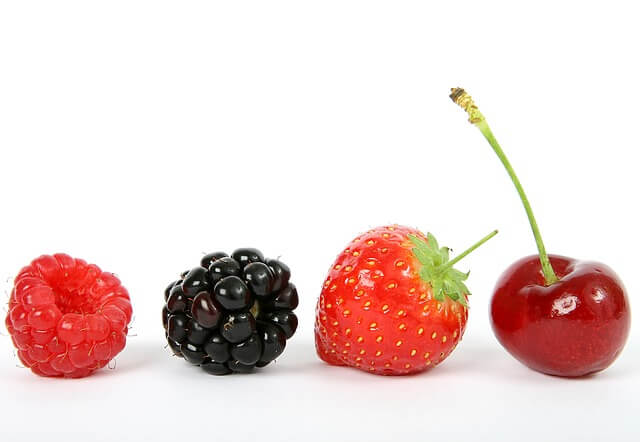 Полезные
ягоды
Полезные
ягоды
Спелая вишня
Красная ягода
Вкусная малина
Чёрная ежевика
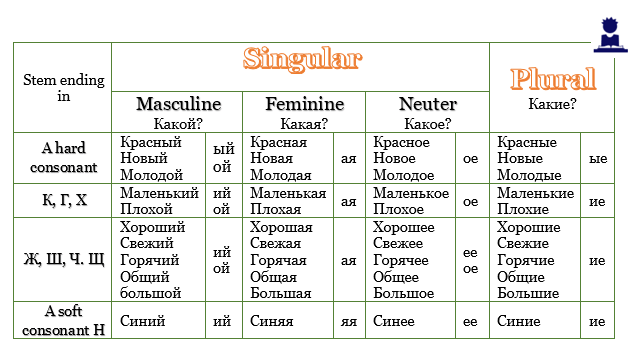
Types of Russian adjectives
If we are talking about the meaning there are three types of adjectives in Russian grammar: qualitative adjectives (качественные прилагательные ), relative adjectives (относительные прилагательные ) and possessive adjectives (притяжательные прилагательные ).
Qualitative adjectives
Qualitative adjectives describe: size, weight, colour, taste, temperature or different qualities of nouns.
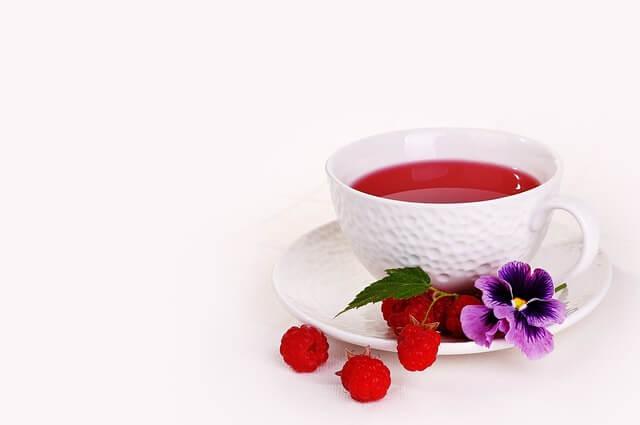
Вкусный чай
Relative adjectives
Relative adjectives denote a feature of an object through its relation to another object (time – ночной поезд (train and night), place – индийский чай (India and tea), the material that an object is made from – деревянный дом (tree and house), action – читальный зал (read and hall), for – детский врач (children and doctor), кухонный стол (table and kitchen)).
Possessive adjectives
Possessive adjectives answer the question ‘whose’ and indicate belonging to a person or an animal ( мамин платок ).
Qualitative adjectives
Qualitative adjectives may have two forms – complete (полная форма прилагательного) and short form (краткая форма прилагательного).
Comparison of Russian adjectives
Adjectives can form the comparative degree (сравнительная степень сравнения) and the superlative degree (превосходная степень сравнения).
Declension
Adjectives in Russian have to agree in gender, case and number (singular, plural) with the noun that they modify.
The declension of qualitative and relative adjectives
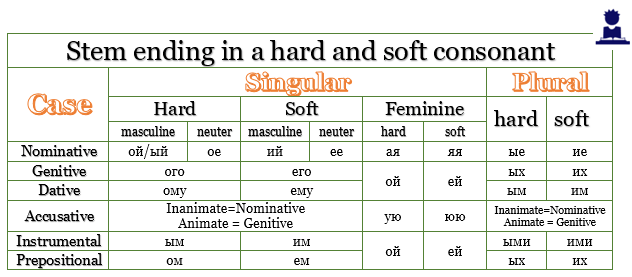
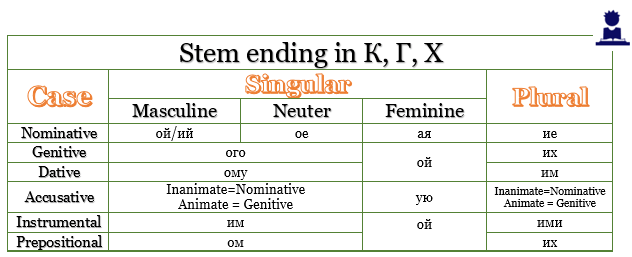
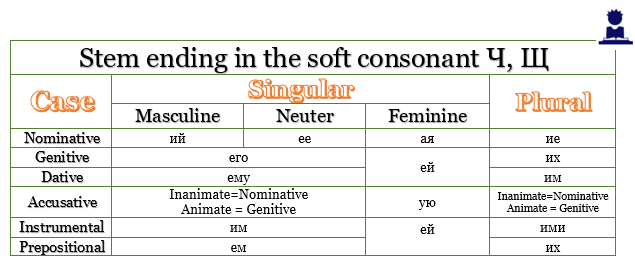
The declension of possessive adjectives
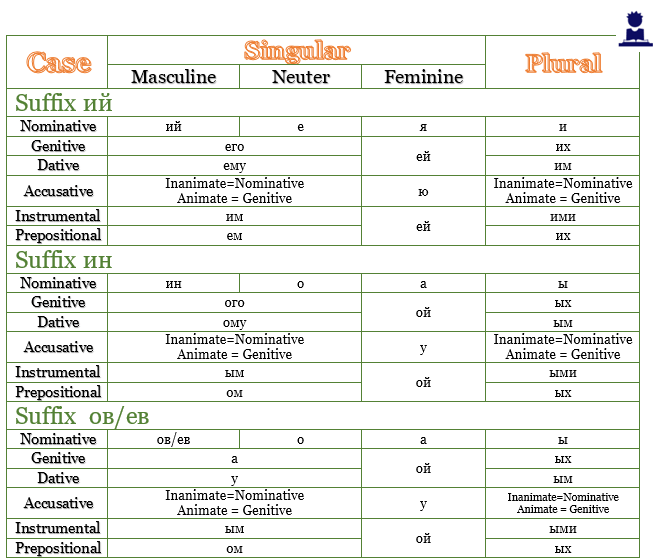
Adjectives with suffixes ин, ов, ев have no endings when they are in Nominative case (just for masculine). Example – мамин(-) кошелёк.
Russian dictionary
Russian English Dictionary
Books about Russian adjectives
If you're aiming to deepen your understanding of Russian adjectives, the link provided grants you access to a diverse selection of existing books focused on this specific aspect of the language. As adjectives play a crucial role in conveying nuances and descriptions, comprehending their usage is essential for effective communication. To truly grasp the intricacies of Russian adjectives, adopting a multi-resource approach is key. These suggested books offer invaluable companionship, furnishing comprehensive insights and clarifications that can significantly amplify your proficiency in working with Russian adjectives. Whether you're a novice embarking on your language journey or a seasoned learner looking to polish your skills, don't miss the opportunity to explore these resources and enhance your command of this fascinating linguistic dimension.
The best book to learn Russian adjectives
"Russian Learner's Dictionary: 10,000 Words in Frequency Order" by Nicholas Brown While this book is not exclusively about adjectives, this dictionary is organized by word frequency, meaning the most common words, including adjectives, appear at the beginning. This can be incredibly helpful for understanding how adjectives are used in various contexts. The dictionary also provides example sentences and explanations of usage, making it a valuable resource for learners looking to enhance their understanding of Russian adjectives in real-world contexts.